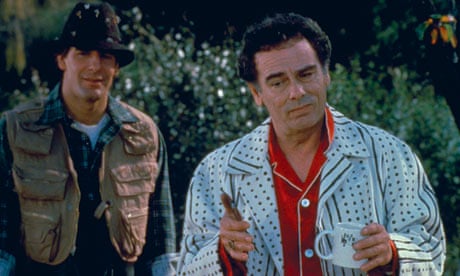China's censors have long been known for their stringent approach to television, but now they are taking on an unexpected small screen menace – the inappropriate use of time travel.
Fans fear the heyday of the popular genre is over after Li Jingsheng, of the State Administration of Radio, Film and Television (Sarft), denounced such dramas' "frivolous" approach to history.
"Time travel dramas are becoming a hot theme for television and films. But the content and exaggerated performance style are questionable," Li, who heads the television drama management division, told a conference.
"Many stories are totally made up and are made to strain for an effect of novelty. The producers and writers are treating serious history in a frivolous way, which should by no means be encouraged any longer," he said.
A statement on the Sarft website warns companies to avoid "incorrect" shows, attacking time travel dramas for their "bizarre" plots and reinvention of myths and even for spreading feudal superstition.
The Xinmin Evening News, which first reported the story, said the administration was outlawing the genre. But experts said the new guidelines – although they already appear to have reined in producers – were not a ban as such.
"A warning – it is not an official ban – from Sarft is already strong enough," Professor Nie Wei, of the School of Movie and Television Drama Studies, at Shanghai University, said.
"The producers of the Palace, the recent popular time travel drama, are changing their scripts [for the next series],.
"Some of the time travel dramas nowadays are made in a very shoddy way and are irresponsible in not respecting history – but overall, it is more complicated [than Li suggests].
"I think whether there is time travel or not is not important. What matters is whether it is a good piece of work or not."
While western examples of the genre, such as Life on Mars or Quantum Leap, have often focused on the recent past, the Chinese programmes fuse a modern mindset with the country's passion for costume drama.
Last year's hits included the Myth, in which a teenager travels back 2,000 years and becomes an army general. The Palace was about a modern girl who finds herself in the much more recent Qing dynasty, where she is torn between two rival princes.
The Sarft director has found at least some backers among television viewers. "History is history; history is not entertainment. This [sort of thing] would confuse young people's minds," one internet user wrote in an online discussion.
But another asked: "Who would watch a television drama as if it was a textbook? Why should it be taken so seriously?"
